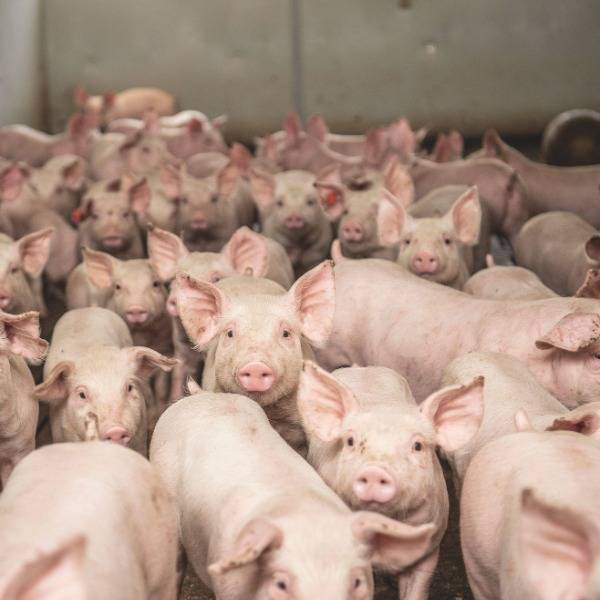With the ratification of Law 603 by the outgoing President Enrique Bolaños last November, Nicaragua outlawed all abortions, including those where the mother’s life is in mortal danger, reversing a right that Nicaraguan women have had since 1893 with the passing of Article 165 of the penal code. The repeal of 165, orchestrated by the Catholic Church in conjunction with evangelical leaders and other right-wing political groups, adds Nicaragua's name to the ignoble list of countries – Chile, El Salvador, Honduras, the Philippines, Somalia, Haiti, Dominican Republic, Andorra and Vatican State – which deny women the fundamental right to abortion on medical or humanitarian grounds.
The bill not only violates Nicaragua’s own historic support of (albeit limited) reproductive rights, it violates its own constitution. Interference by the Church in national politics is unconstitutional according to article 69 of the 1983 Nicaraguan Constitution that established Nicaragua as a secular state. It also violates numerous treaties to which Nicaragua is a signatory, including the Universal Declaration of Human Rights and the Convention of the Elimination of All Forms of Discrimination Against Women.
Nicaragua is a largely Catholic country (some estimate this to be as high as 85 per cent) and the church rallied its sizeable congregation in support of the repeal. On October 6 a pro-life rally of 200,000 people marched to the National Assembly in Managua where the leaders met with members of the Justice Commission and presented a petition in support of the ban. However the proposed legislation was also widely criticised by medical associations, women’s organisations and human rights groups. On October 10 hundreds of women from all over the country marched against the bill, but on arrival at the National Assembly found no one there willing to meet them. The Catholic and evangelical lobby drove the legislation through in the weeks prior to the November presidential elections, and when Bolaños ratified it, on November 17, 2006, it was in front of a small private audience including the same religious leaders who had proposed it.
Notably lacking from the chorus of voices opposing the bill was that of the political left. In the National Assembly 52 of the 92 members approved the bill, including many representatives of the Sandinista National Liberation Front (FSLN) the left-wing party which governed Nicaragua from 1979 to 1990. Whether the fact that the FSLN have supported this measure indicates an ideological shift or a cynical attempt to curry favour with the Catholic Church and Catholic voters is not entirely clear. The November elections returned the FSLN candidate Daniel Ortega, president from 1985 to 1990, to power but despite his former radicalism there seems no reason to expect him to overturn the bill.
Ortega has put his Marxist past behind him and increasingly associated himself with religion and the Catholic Church, which supported his campaign. Formerly a supporter of abortion rights, he has realigned with the church on the issue. Though some cling to the idea that this has been a tactic to regain power, and that once in office the radicalism will return, opponents of the bill are highly sceptical. And anyway whether Ortega is entirely sincere is, for millions of women, beside the point, as journalist Nora Conner points out “So what if Ortega is lying through his teeth when he praises God? If you live in Nicaragua and end up with an ectopic pregnancy, you now get to choose between risking death by not aborting and risking death by having an illegal abortion, but you will have no choice about going to prison.”
Nicaragua, the second poorest country in Latin America after Haiti, already has severe difficulties offering adequate healthcare to women. Each year around 144 women of reproductive age die, many of them as a consequence of pregnancy-related illnesses. According to the World Health Organisation representative in Nicaragua, Patricio Rojas, maternal mortality is 83.4 deaths for every 100,000 births. Seventy per cent of these occur in rural areas where access to medical attention is scarce.
The terrible cost of this new ban is starting to make itself felt. The Nicaraguan media report that at least two women have died since the passage of the law as doctors have failed to intervene out of fear of legal retribution. Medical staff that assist women to obtain an abortion or perform an abortion themselves now face up to 20 years imprisonment, loss of their medical licence and the closing of the medical facility. Women who undergo an abortion will face between four and six years of prison.
Although the law has been passed the struggle against it is not over. Women’s and human rights groups are currently studying the legal options for contesting its constitutional basis.
Daniel Ortega was returned to power offering “national reconciliation”. But what, we should be asking, does he intend to do for Nicaragua’s women? Will he recognise that women’s reproductive rights are an essential part of modernising Nicaragua and reducing death and disease?
One of Ortega’s most bizarre recent statements calls for the Nobel Prize to be awarded to the former Archbishop of Managua, Miguel Obando y Bravo, a particularly staunch ally of the US-backed Contras in the 1980s and, as might be expected, a virulent opponent of abortion rights. Though opposition to the law continues, it seems unlikely that it will get any support from this born-again president. ■
Rebeca Zúniga-Hamlin is the Co-ordinator of the Women’s Rights and Gender Violence Programme at the Central America Women’s Network

